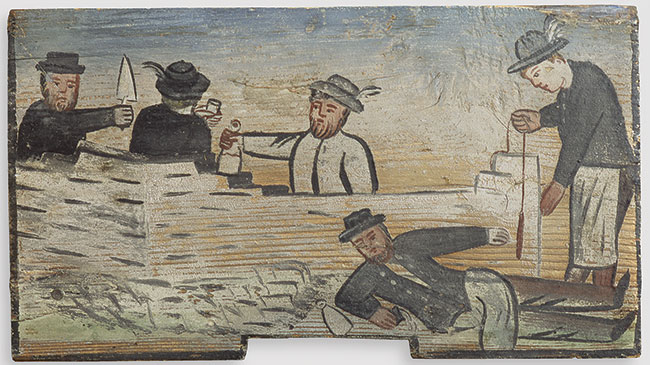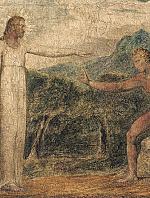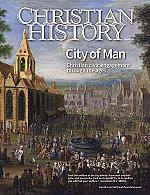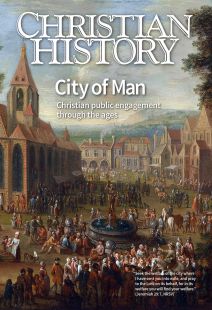Forming a community of hope

[Above: Pijani zidarji (Drunk Masons), 1864. Dim.: 13.5 x 24 cm. Museum of Apiculture in Radovljica, Slovenia, ČM 1224]
How can civic engagement change communities? We spoke to Amy Sherman, senior fellow at the Sagamore Institute, where she directs the Center on Faith in Communities. Sherman is the author of seven books including Kingdom Calling and Agents of Flourishing.
CH: Could you reflect on what civic engagement means?
Amy Sherman: I would define it broadly as the activities of citizens to contribute to the flourishing of their communities to make life better for everyone. It makes a couple of assumptions. One is that we as individuals are part of a larger society to which we have responsibilities and obligations. For Christians that’s rooted in our understanding of human nature: if God himself is community in the Trinity, we are relational in his image.
I’ve learned the other assumption from Christopher Wright’s Old Testament Ethics for the People of God. He critiques Western culture’s focus on individual ethics: if individually all of us are honest and fair and compassionate, we’ll get a good society. In the Old Testament, it’s the opposite. The people of God form a community that is a prototype of the new humanity. That defines the kind of people individual members need to be. Individual ethics are derived from social ethics.
In many churches we don’t have a robust conversation about civic engagement because we’re not formed in that biblical mentality. We get teaching and discipleship on personal piety and individual ethics: what does it mean to be a good parent or spouse or a good and faithful and honest employee? But we don’t get a lot of discipleship about what it means to be a good citizen.
CH: How does it relate to the common good?
AS: Civic engagement advances flourishing for everyone in the community. I have found the perspective of the Thriving Communities Group most helpful. They identify six realms of social life that are highly interrelated, and we need strength and health in each: the Good (social ethics and mores), the True (human knowledge), the Beautiful (aesthetics and design), the Just and Well-ordered (governance and law), the Prosperous (economics), and the Sustainable (the natural environment and public health).
CH: How does it relate to political involvement?
AS: Political involvement is one important aspect of civic engagement, but it’s not the whole thing. Civic engagement does involve voting and showing up at local hearings about important zoning issues and running for the school board and educating yourself about a candidate’s platform. But it’s also about designing citizen solutions, not just government solutions, to social problems. Public action may be taken by citizens in the business community, in the church community, in the nonprofit community, as well as by public officials and government agencies. All of that is civic engagement.
CH: How does it relate to community revitalization?
AS: As Christians our conception of love of neighbor and community revitalization needs to have a downstream and an upstream dimension. Downstream activities are compassionate responses to people in need. Suffering people are in the river, drowning. We need to jump in the river and rescue them with practical supports for the unemployed person or the person struggling with substance abuse. That is a concrete expression of love of neighbor. But love of neighbor also requires us to look upstream and ask: How did all these people end up in the river in the first place? Are there not guardrails? Are bad guys up there pushing people into the river? The upstream stuff is about public policy, economic regulations, technology innovations, corporate practices.
In the world of Christian community development, we talk about “hard” development and “soft” development. Hard development involves tangible artifacts—building housing or improving infrastructure because all the streetlights are busted and the sidewalks are terrible.
But there’s also soft community development, which asks: How can we increase trust in the community—among neighbors, between police and citizens? How can we increase connectedness and decrease isolation? How can we engender hope among people who feel disenfranchised? How can we get people to take on personal responsibility for the ills within their community rather than sitting back and expecting government to come in? These are intangibles, but they are equally, if not more, important. CH
By Amy Sherman
[Christian History originally published this article in Christian History Issue #141 in 2021]
Amy Sherman is senior fellow at the Sagamore Institute, where she directs the Center on Faith in Communities, and has authored seven books including Kingdom Calling and Agents of FlourishingNext articles
City of Man: Recommended resources
learn more about christian civic engagement through these suggestions compiled by our editors and contributors.
The editors and contributorsDivine healing: Did you know?
Stories of divine healing throughout church history drawn from our archives
The editors







